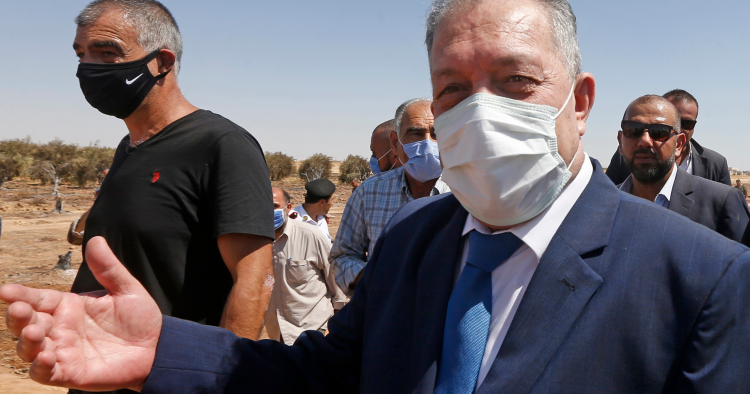On Aug. 25, Syrian President Bashar al-Assad tasked Hussein Arnous with forming a new cabinet. The prime minister-designate can choose only two to three ministers himself, while the rest will be selected by the president according to his vision. The president in turn nominates candidates after gathering recommendations from several groups, including friends and advisors, the security apparatus, and the Ba’ath Party leadership.
Once all the names are collected — often more than twice as many as needed — a final session will be held to determine the cabinet’s makeup and ensure it reflects the president’s priorities vis-à-vis the international political situation and the message he wants to send to domestic and international audiences.
Names are currently collected in the following ways:
-
Hussein Arnous meets with people, although this time around he has met with very few and the meetings haven’t received any media coverage. This is a new development because the meetings usually receive at least some coverage in the Syrian media.
-
Asma al-Assad receives individuals and groups.
-
The Russians meet people, either at their embassy in Damascus or at the Russian Reconciliation Center for Syria in Yafour.
-
Bashar al-Assad is taking a different approach. He spent 10 days commuting between Alawite villages on the upper coast, eating breakfast in one and lunch in a second as part of an effort to restore relations. These have been badly strained by the number of Alawites who have died in the war — around 170,000, mainly men — as well as the disagreements with the Makhlouf and Khair Bek families and the kidnapping and killing of many Alawite opponents, perhaps the most prominent of which was Abdul-Aziz al-Khair.
So what should we expect from the next cabinet? The following all seem likely to be important considerations when it comes to its makeup:
-
Women: Increasing the number of women to four to six to send a message to the West and international women's advocacy organizations that Assad supports women and is committed to increasing their political participation. It would not be surprising to see a woman in a post like vice prime minister or minister of state for foreign affairs.
-
Christians: Increasing the number of Christians to three to four, with one of them being placed in a ministry that was not previously held by a Christian during the Assad era, in order to send a message to the West that it is better to deal with his regime rather than extremists and that the regime preserves religious freedoms.
-
Age: The average age of ministers will be reduced, and for the first time there will be people under the age of 40.
-
Alawites: Their number will not exceed three, but they will be people respected among the sect and from prominent families.
-
Retired officers: One to three officers with the rank of major general or retired brigadier general will be appointed as ministers.
-
Minister of the Interior: He will maintain the minister.
-
Minister of Foreign Affairs: The current minister, Walid al-Muallem, will likely be changed, but it is difficult to see Ambassador Bashar al-Jaafari or Vice Minister Faisal Mikdad being appointed to replace him. An ambassador or state minister could be drafted in instead.
-
Minister of Defense: The minister will probably be changed because the Russians do not like him.
-
The size of the government: Assad will maintain the government’s size and will not reduce it because he wants to send a message that it’s business as usual and there is nothing new despite nine years of war.
-
Economic ministries: He will make big changes to the ministers involved in the economic sector (economy, industry, and agriculture) because it will be a priority. The president will ask the ministerial statement of the new government to focus on it and it will be a key factor in maintaining steadfastness against the Caesar Act.
-
Druze: There will be one Druze minister who will be picked from those who opposed the demonstrations that happened in Sweida two months ago.
-
Kurds: There will be one or two Kurds (ministers of state with no portfolio) picked from the parties of the national coalition with the Ba’ath (communist-socialist parties).
Ayman Abdel Nour is a noted Syrian reformist, the editor-in-chief of All4Syria (Syria's leading independent news outlet), and the president of the non-profit Syrian Christians for Peace. The views expressed in this piece are his own.
Photo by LOUAI BESHARA/AFP via Getty Images
Notes
1. The prime minister’s official title is the head of the Council of Ministers. He is not the head of the ministers because this position is reserved for the president himself. Under the constitution the president is the head of the executive branch.
2. The power and mandate of the prime minister is very limited. All of the major policies are decided by the president and the Ba’ath Party.
The Middle East Institute (MEI) is an independent, non-partisan, non-for-profit, educational organization. It does not engage in advocacy and its scholars’ opinions are their own. MEI welcomes financial donations, but retains sole editorial control over its work and its publications reflect only the authors’ views. For a listing of MEI donors, please click here.













